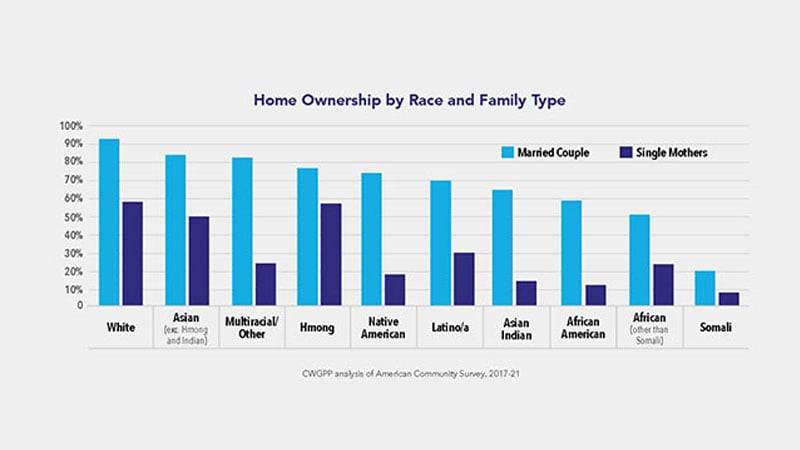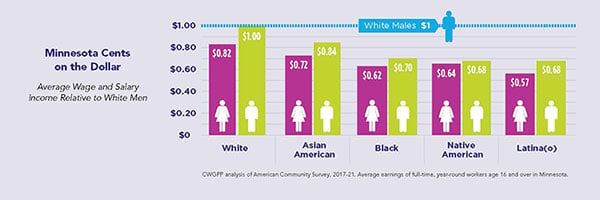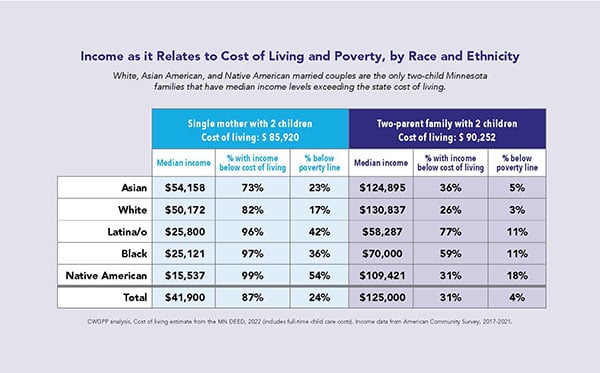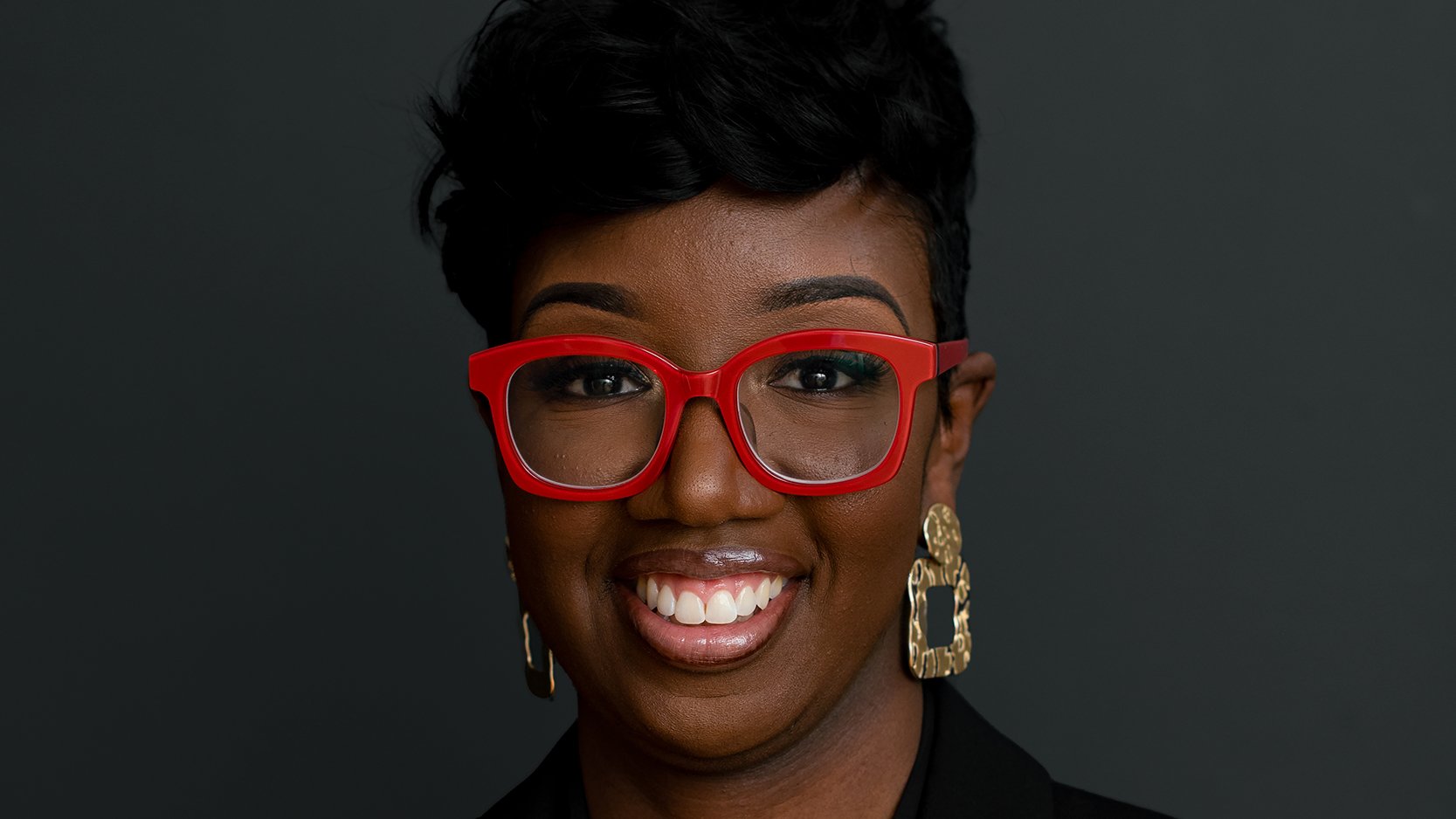Twin Cities Habitat Partners with MBCRE to Advance Racial Equity in Minnesota’s Ecosystem
Twin Cities Habitat Partners with MBCRE to Advance Racial Equity in Minnesota’s Ecosystem: An Exclusive Interview with Tiffani Daniels, Managing...
4 min read
 Guest Blogger
:
4:00 PM on April 12, 2024
Guest Blogger
:
4:00 PM on April 12, 2024

This guest blog post by Tiffani Daniels is part two of a four-part blog series about our partnership with the Minnesota Business Coalition for Racial Equity (MBCRE). Subscribe and follow the Building Community blog at https://www.tchabitat.org/blog.
In my first blog post with Habitat, I discussed the importance of creating and sustaining an ecosystem to generate wealth in Black communities. Earlier this year, the Brookings Institute reported that “...in 2022, for every $100 in wealth held by white households, Black households held only $15.” A gap that wide requires transformational thinking, collaboration, all the wealth building tools we know about and the ones we haven’t created yet.
At the Minnesota Business Coalition for Racial Equity, we work to direct resources from the business community toward positive economic outcomes for Black Minnesotans. As a group of some of Minnesota’s largest employers, we must focus on employment and how companies are disrupting their existing practices to create greater, boundary-less opportunity for Black employees, which can lead to higher-paying jobs, increased household incomes, and ultimately wealth creation.
Pay equity and transparency are key components of this effort. As we come out of Women’s History Month, where we also celebrated Equal Pay Day, and look ahead to Black Women’s Equal Pay Day, I am sensitive to the needs of a particular group of people in our state, women, specifically Black women. The 2024 Status of Women and Girls+ in Minnesota report revealed that Black women earn $0.62 on the dollar relative to white men, amounting to just under $1 million in lost earnings over a career. In a state where almost 60% of Black mothers are breadwinners in their families, that’s an issue that will show up for generations of Black families. How we pay workers is a critical aspect of closing the wealth gap.

Source: Women's Foundation of Minnesota.
My experience and observations also showed me that true pay equity goes beyond the misaligned bar graphs. Equitable solutions can and should be, just as diverse as those affected.
I moved to Minnesota fifteen years ago for an internship. On my first day, I realized two things: I was the ONLY Black person in my organization, and I would only be paid twice in a 10-week period. I struggled. I needed money to support myself, but I didn't want my coworkers to think that this young woman raised by a single mother in Detroit was a poor Black girl, which might suggest that I didn’t belong there in the first place. Eventually, I had to request a pay advance. Without the company’s willingness to review their systems and take action, I would have been forced to quit the internship. As we uncover how systems do not serve everyone equitably, we must act. We must each be willing to play our role in connecting the dots for the growth of our organizations, the well-being of the families our work touches and, ultimately, the sustainability of our economy.
According to an EY Survey, equitable pay may be the fastest route to addressing inequity; 40% of respondents cited pay equity as the top contributor to a sense of equity at work. Our model at MBCRE is framed around creating solutions with, not just for, the communities we serve. We have been working directly with our members and partners to make sure Minnesota companies can continue to hire, retain, and advance Black Minnesotans into well-paying roles. Building a career can transform the wealth position of a family and create lasting change for generations.
Our efforts and impact have been encouraging:
As a coalition of business leaders, we are compelled to act based on data. The data is clear:
It’s expensive to be poor. As we think about pay, it’s important to consider over 20% of Minnesota’s Black population live in poverty, and only 29% own their home. Today fewer Black Minnesotans own a home than in the 1950s. As business leaders, MBCRE members understand the need to attract and retain talented people to Minnesota by providing a quality of living that includes the opportunity to own a home. And we know there’s an opportunity to educate more people on how home equity is key to building wealth.

Source: Women's Foundation of Minnesota.
Last year, we supported the First Generation Homebuyers Fund, which provides financial support even in cases of past foreclosure. Especially in today’s real estate market, as we see homelessness on the rise in the Twin Cities, it’s critical to create more opportunities for flexible financing to close the gap for potential homebuyers.
I'm grateful for all partners in the ecosystem that make progress towards increased Black wealth possible, and I’m inspired when our work collides. As part of the ecosystem, Twin Cities Habitat and MBCRE share a partner in First Independence Bank. I encourage you to learn more about how Twin Cities Habitat is advancing Black homeownership through the Special Purpose Credit Program to educate and connect Black Minnesotans with the tools and resources to purchase and stay in their homes. And consider ways you, your organization or partners can help create even greater impact in the ecosystem. It takes all of us.
About Tiffani Daniels: A native of Detroit, Michigan, Tiffani Daniels is a brand builder, strategist, and racial equity advocate. It was her formative years in Detroit and training as a business leader that prepared her to serve as the inaugural Managing Director for the Minnesota Business Coalition for Racial Equity (MBCRE), where she is responsible for building the organization’s strategy, structure and operational plans to drive economic impact by leveraging the resources of Minnesota’s business community. In two years, she has positioned MBCRE for unprecedented impact and action.
Your gift unlocks bright futures! Donate now to create, preserve, and promote affordable homeownership in the Twin Cities.

Twin Cities Habitat Partners with MBCRE to Advance Racial Equity in Minnesota’s Ecosystem: An Exclusive Interview with Tiffani Daniels, Managing...

A January 2024 article by NPR reported on a study that found housing is now unaffordable for a record half of all U.S. renters. When we focus on...
.png)
Several years before adopting our new Strategic Plan: Build Forward Together, Twin Cities Habitat began seeking creative solutions to bridge the...